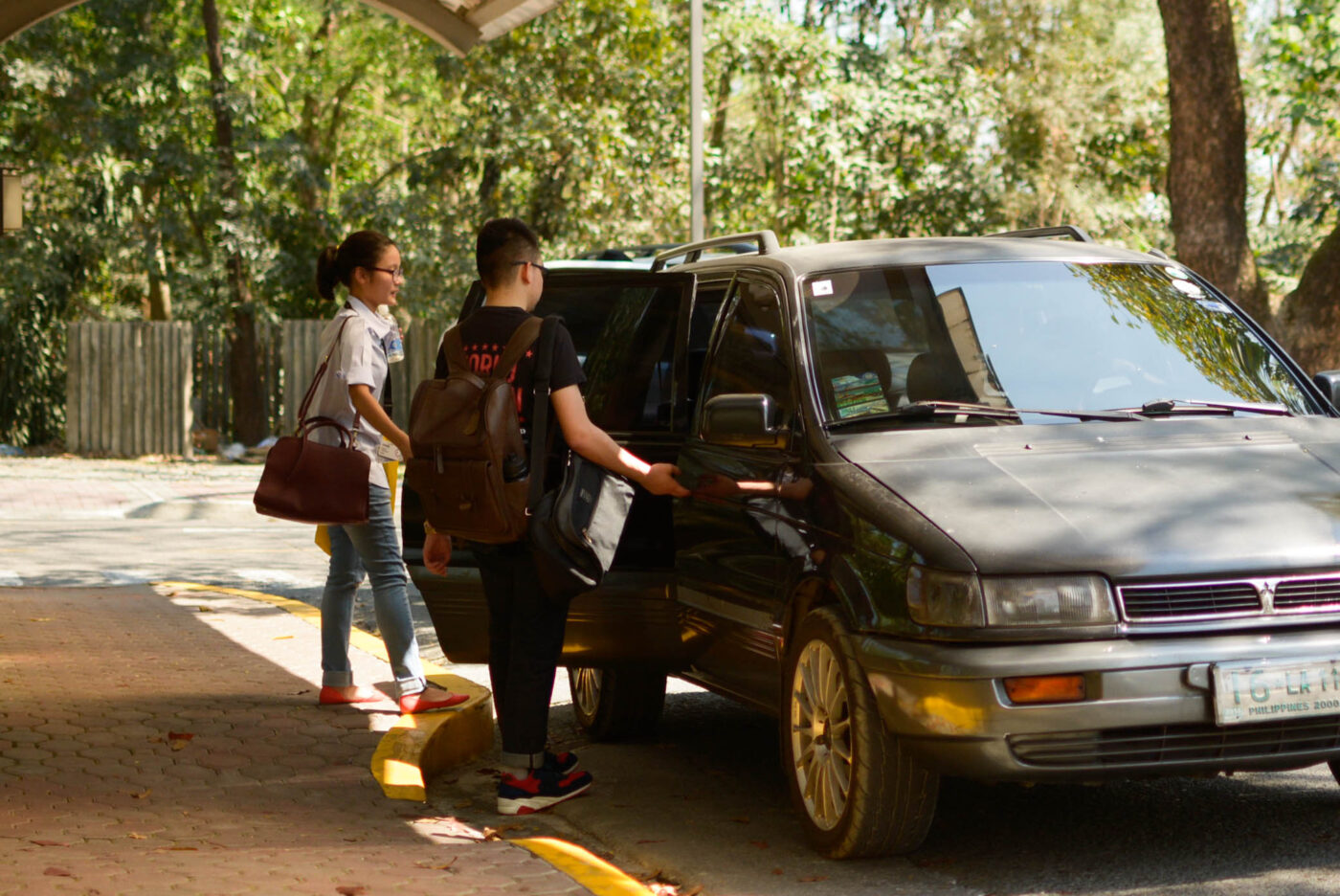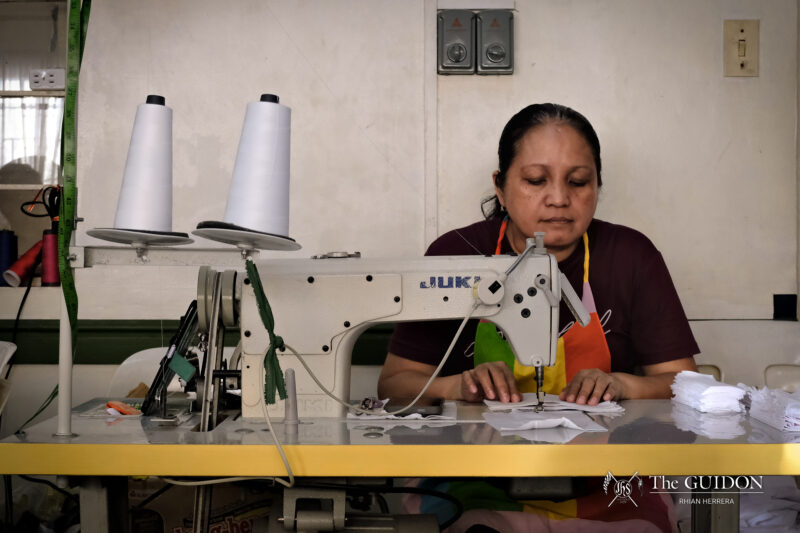When you don’t have your own car and you don’t feel like fighting for elbow room aboard the MRT or LRT, hitching a ride in a friend’s car sounds like the perfect solution. Things get a little more complicated, however, when there are more than two passengers in the vehicle with varying schedules and drop-off points.
Carpooling can be fun and efficient, but it can also be a hassle, especially when there isn’t much organization or communication between the driver and the riders. Carpooling services like Tripda and Tripid offer to solve these problems, but they aren’t completely free from issues of their own. By digitizing the system of carpooling, just how much are these services changing the carpooling experience?
Passenger seat
Perhaps the most obvious benefit of carpooling is its ability to lessen one’s travel expenses. By splitting gas and toll fees when necessary, the cost is lowered, depending on the number of passengers. Aside from the financial benefits, there are still other reasons why some choose carpooling over solo travel or public transportation.
For one, it allows people who live far away from school to still enjoy the comforts of home. “I tried staying in Katip for a sem, but I really preferred going home [to Alabang],” says Bettina Daez, a management senior. According to Daez, the Alabang carpool is a large one, with over 80 members and cars going to and from Ateneo “practically every hour.”
Renzo Escalona, a junior majoring in development studies and economics, who also lives in Alabang, attests to the environmental benefits of carpooling: “It helps that we get to cut back on our [negative] effects on the environment as well, knowing that around 80 people will be carpooling with around 15 cars a day instead of each bringing their own car.”
Still, despite its various benefits, carpooling also has its own share of drawbacks. “There are carpool horror stories where ride givers and riders always come super late for their scheduled rides, making all the other riders late for class as well,” recounts communication sophomore Gaby Gloria. “This is an even bigger disadvantage when you have a quiz or long test that you can’t be late for.”
As for Daez, she has learned to adapt to what others would see as annoyances. “I guess the biggest concerns would be lost time and heavy traffic. Some people wonder why I still choose to carpool because they think Alabang is insanely far,” she explains. “With regard to the idea of lost time, this is something I have just adjusted to. I either use the travel time to study or sleep, so it doesn’t strike me as lost time.”
Share-a-ride
For those who do not live in an area with an active carpool group, ride or route-sharing services like Tripda and Tripid have sprung up to try to offer a solution to our congested highways. These allow private car owners to rent out seats to passengers based on a particular schedule or destination. Tripda and Tripid act as middlemen, since they only suggest fares—ultimately, the driver and the passenger decide for themselves.
Tripda has steadily been gaining ground since it launched in 2014, having already expanded throughout North and Latin America and Asia. According to Julia Esguerra, a communications technology management senior and Tripda intern, carpooling was already a common practice in Brazil, so it wasn’t difficult for Tripda to popularize the service there. Since this isn’t the case in the Philippines, Tripda has been trying to address this by creating a stronger presence in universities. “Younger people are more open to new ideas and they’re the ones that have a big influence on what’s ‘in’ or not,” explains Esguerra. As a campus ambassador, Esguerra acts as a “bridge” between the Ateneo and Tripda, and looks for opportunities for the company to partner with student organizations.
Tripid, on the other hand, is the only carpooling service created and based in the Philippines. It actually came before Tripda, having been established back in 2012; recently, however, the Land Transportation Franchising and Regulatory Board has stated that Tripid is violating the law, because as a business, it has yet to secure a franchise.
To address concerns about safety and reliability, both services allow users to create profiles, give ratings and write reviews about drivers and passengers alike. Tripda is unique in its having a Ladies’ Only option that allows women to travel only with women for the security of its female riders. On the other hand, Tripid has a distress feature called the Community Call. Each user is prompted to create a list of Community Call Contacts and if anything untoward happens during the trip, users can press the Community Call button to send their location to their emergency contacts.
Esguerra adds that Tripda has been working on incorporating badges into user profiles to confirm that they are telling the truth about where they are from. “For example, for us in Ateneo, if you register your OBF email, you can get a badge on your profile that certifies you’re from Ateneo. So, for example, if a user would be comfortable sharing rides with just people from the same community, there would be a way to verify that.”
Carpool communities
Within the Ateneo, the Loyola Schools has its own established carpool system, courtesy of the Department of Student Welfare (DSWS). According to DSWS Chairperson TJ Santos and DSWS Carpool Head Kimberly Lim, it was set up with the intention of raising environmental awareness among students, lessening the traffic of the Katipunan Avenue area and de-clogging the parking lots of the Ateneo.
The DSWS scheme allows for both pre-formed groups with a minimum of three members and individual sign-ups to be matched up according to destination and role, either as a driver or a passenger. The system is entirely free and even offers a reserved slot in the John Gokongwei School of Management Student Enterprise Center, and the North and Lower East carparks for registered carpool vehicles.
Despite the convenient service offered by DSWS, Santos and Lim say that there has been some trouble in getting potential carpoolers to sign up in recent years. Because of this, DSWS has been trying to come up with ways to revamp the system. Coincidentally, it was also around this time that Tripda first approached the Ateneo through DSWS.
“We had hoped to offer the new system earlier this year, but due to safety concerns, the date has been pushed [back] indefinitely,” explains Santos, clarifying there is no official partnership between the two just yet. “Although there is no official partnership yet, we’re working with Tripda because they’re really interested in making things work out. When we first had our meeting, I already had a few safety concerns and they were very eager to listen,” Santos adds.
While carpooling does lighten the burden on our environment and on our wallets, interaction among passengers is half the fun of the carpooling experience. “I think it’s a great way to make new friends and bond,” shares Gloria. “I mean, what else would you do if you were stuck in traffic together for two or three hours?” With carpooling services on the rise, the digital world will hopefully bring the experience to an even larger number of people.
Editor’s Note: Gaby Gloria is a member of the Vantage Staff.
[seperator style=”style1″]When sharing isn’t caring[/seperator]
By Raf S. Nakpil
Bikes, cars, apartments and even bathrooms—thanks to the advent of the sharing economy, people can quite literally find anything they need online. Still, despite the convenience and affordable prices, the act of sharing appears to be a struggle for some.
[columns][two-columns]
[/two-columns] [two-columns]
Uber
Uber, the ride-sharing app that connects users with taxi drivers or other u sers willing to drive them around for a small fee, was founded in 2009. Since then, it has grown at breakneck speeds and is worth over a billion dollars today. Its rise to the top has been marred by controversies, however, as it has been accused of purposely sabotaging competing firms and been involved in the alleged abduction of several passengers. [/two-columns][/columns] [columns][two-columns]

[/two-columns][two-columns]
CouchSurfing
The popular hospitality exchange app has been around for 11 years, and while a lot of CouchSurfing hosts seem to be fine people, a good number of them have turned out to be rapists. As recently as November 2014, a male CouchSurfing host from New Zealand was arrested for drugging and sexually assaulting his male guests. The man now faces several charges, including theft and making intimate visual recordings. [/two-columns][/columns] [columns][two-columns]

[/two-columns] [two-columns]
TaskRabbit
TaskRabbit is a service that offers people the chance to hire other people for whatever odd jobs they feel need to be done for them, like making coffee runs, assembling furniture and cleaning houses. The workers, or TaskRabbits, bid on jobs by offering lower rates for their service. Unfortunately, this has led to several workers being severely underpaid for their work due to the unregulated nature of TaskRabbit’s job market. [/two-columns][/columns]







